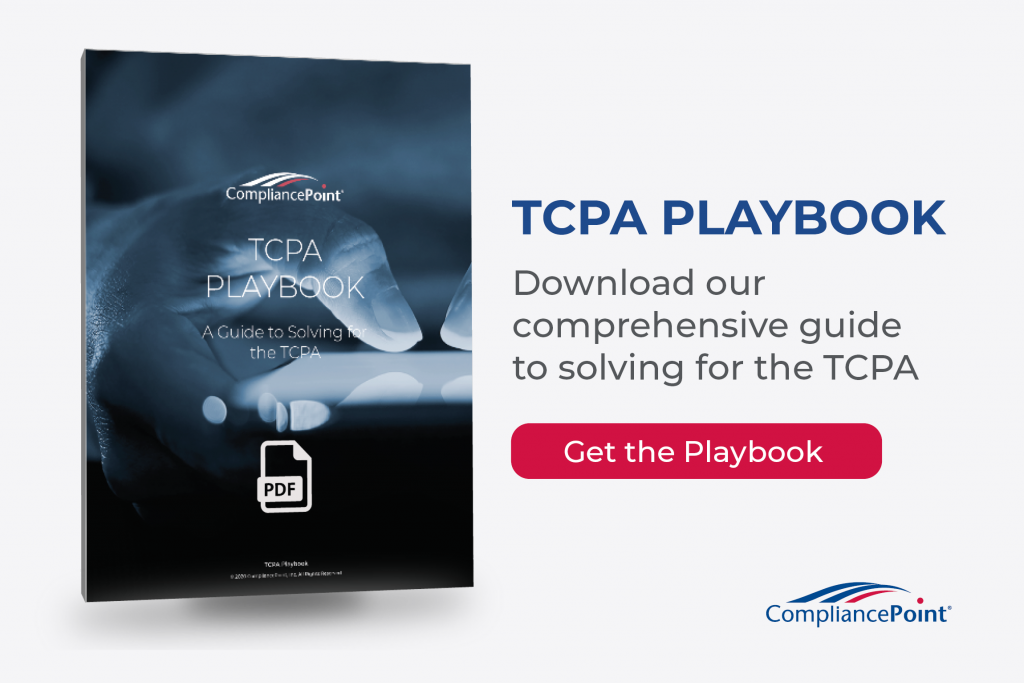Supreme Court Rules on Facebook TCPA ATDS Case
The Telephone Consumer Protection Act of 1991 (TCPA) bans abusive telemarketing practices by, among other things, imposing restrictions on making calls with an “automatic telephone dialing system” (ATDS). The term ATDS is defined as “equipment which has the capacity—(A) to store or produce telephone numbers to be called, using a random or sequential number generator; and (B) to dial such numbers.”
However, in 2015 the FCC released a Declaratory Ruling that expanded the TCPA’s reach by broadening the statutory definition of an ATDS by stating “a piece of equipment can possess the requisite ‘capacity’ to satisfy the statutory definition of ‘autodialer’ even if, for example, it requires the addition of software to actually perform the functions described in the definition.”
The inclusion of this potential capacity component, and not how a phone number was actually dialed in a present capacity, caused a flurry of lawsuits against legitimate companies. Many courts ruled that dialing systems with a capacity, or future capacity, to meet the definition of an ATDS are covered under the law regardless of how a call was actually placed.
The Facebook suit was filed in 2015 by a non-Facebook user who began receiving security alert text messages even though he did not have a Facebook account (remember, calls and texts are treated the same under the TCPA). The plaintiff argued that Facebook violated the TCPA’s prohibitions on using an ATDS without consent. The 9th Circuit (located in California) sided with the plaintiff in 2019, and Facebook appealed this ruling to the Supreme Court.
The Ruling
“The Ninth Circuit’s interpretation,” Facebook said, “renders unlawful virtually every wrong number called from the contacts list of any smartphone in the United States.” It appears that the Supreme Court agreed with the notion that, without the term “capacity” defined, the 9th Circuit’s interpretation, like many other Circuits, is too broad. Therefore, the Supreme Court overruled this decision.
The Supreme Court unanimously sided with Facebook in its appeal that the text messages it sent did not violate the TCPA. The case turned in part on how to read the language in the ATDS definition, and the Supreme Court confirmed that “the statutory context confirms that the TCPA’s autodialer definition excludes equipment that does not use a random or sequential number generator.”
The plaintiff argued that random or sequential number generators are antiqued technologies, and CompliancePoint agrees with this notion. However, the Supreme Court still held “that may or may not be the case, but either way, this Court cannot rewrite the TCPA to update it for modern technology.”
The full opinion can be found here.
What it Means
CompliancePoint believes there will now be fewer lawsuits filed for allegations of using an ATDS, as the definition is pretty clear on what does and does not qualify as such. Companies may be ok with reading this opinion and choosing to not have completely separate systems to manually dial and autodial consumers, as many currently do, due to the strict reading from the Supreme Court.
It appears that future lawsuits and allegations will now mostly stem from do not call issues where consumers believe they were contacted by call or text when they shouldn’t have been.
What it Does Not Mean
Telemarketing rules just got much more relaxed, right? The answer is no.
This ruling does not affect state or federal do not call (DNC) rules. If a consumer makes an opt-out request to a company, that request must still be honored. Further, when attempting to obtain express written consent from consumers, all previous requirements are still intact.
In addition, this ruling does not affect other autodialer rules such as call abandonment or prerecorded message requirements. When dialing in a predictive manner, calls can get abandoned, and the abandonment messages (and all of its requirements) must still be complied with. All prerecorded message requirements, such as automated opt-outs and proper consent, must still be complied with as well.
This ruling also does not impact vicarious liability. Companies have been held responsible for the actions of their 3rd party vendors, dealers, franchises, etc., in many different rulings, and that concept has not been affected.
In summary, this long-awaited ruling clears up the confusion as to what qualifies as an ATDS in the 21st century and with the use of modern technology.
Please reach out to us at connect@compliancepoint.com if you have any questions about this topic or how CompliancePoint can assist your organization with managing your marketing compliance.
Finding a credible expert with the appropriate background, expertise, and credentials can be difficult. CompliancePoint is here to help.






